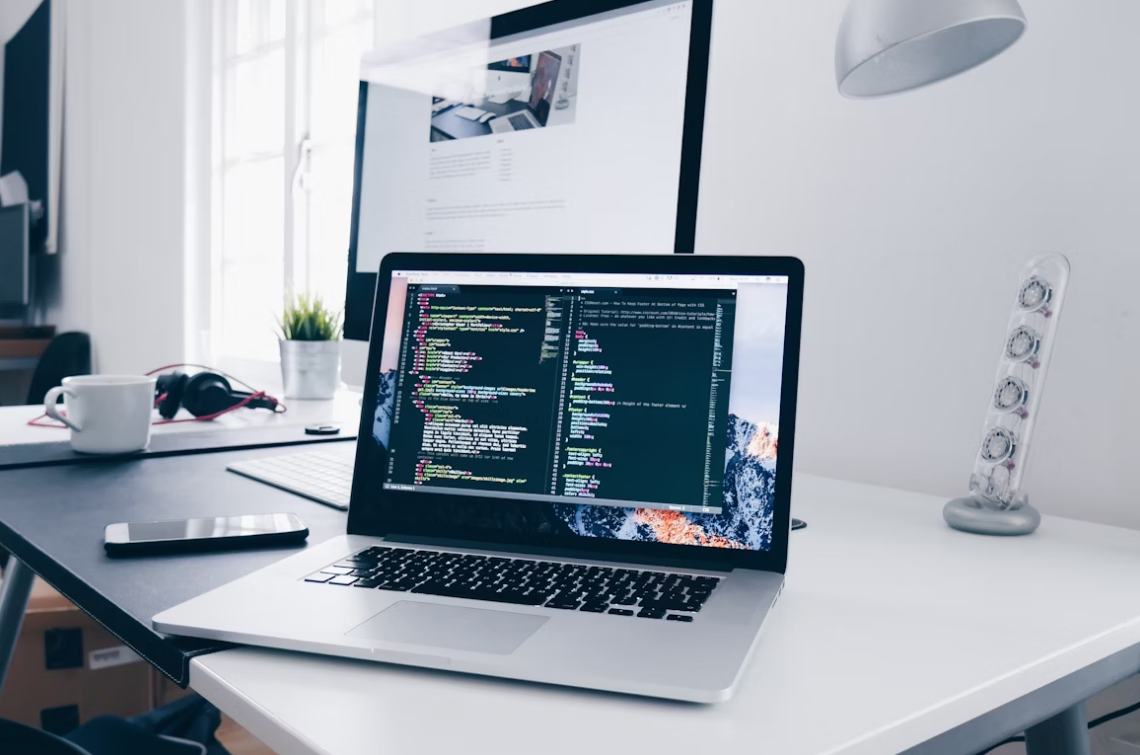
The year ahead promises to reshape how we live, work, and interact with technology in ways that are only beginning to take shape.
Systems, devices, and software are quietly evolving, affecting everyday tasks and decisions in ways most of us cannot yet see.
Opportunities and challenges are emerging simultaneously across industries, careers, and daily life. As we look ahead, knowing which trends will matter most could determine how people and businesses adapt to this next phase of transformation.
1. autonomous AI and intelligent agents
Agentic AI is redefining how organizations manage workflows by operating independently across planning, execution, and adaptation.
These systems can complete complex tasks without direct human intervention, providing faster responses and reducing errors.
Businesses are seeing measurable efficiency gains, from logistics to finance, through continuous optimization at scale. Professionals skilled in designing, monitoring, and ethically managing these autonomous agents are increasingly sought after.
2. AI governance and compliance
As AI becomes central to operations, governance is evolving from optional to essential. Companies must ensure models are transparent, fair, and free of bias while maintaining full accountability for decisions.
Organizations that adopt governance early gain trust from clients and investors and can avoid costly compliance issues. Careers in model auditing, risk assessment, and ethical oversight are growing in demand.
3. generative AI 2.0
Generative AI is moving from experimental tools to enterprise-grade solutions capable of handling text, visuals, code, and structured data simultaneously.
These systems support decision-making, automate workflows, and maintain compliance in regulated industries. Organizations now prioritize production-ready applications that improve efficiency and reduce risk.
Professionals who can fine-tune, deploy, and govern these systems will shape the next generation of AI-enabled businesses.
4. low-code and AI-assisted development
Low-code and no-code platforms empower non-technical users to build software quickly, shortening development cycles from months to hours.
When combined with AI assistance, these tools enable automated testing, scaffolding, and optimization of workflows.[/p]
Teams across business and technical roles can now collaborate more effectively on projects. Learning to integrate AI with low-code systems is a critical skill for modern software development.
5. human-AI collaboration tools
AI is becoming a true teammate, contributing actively to projects instead of merely assisting. From content creation to analytical problem-solving, these systems allow humans to focus on higher-order decision-making while AI handles repetitive tasks.
Hybrid workflows increase productivity, creativity, and accuracy across teams. Professionals must understand responsible AI integration, prompt crafting, and feedback management to thrive in AI-augmented environments.
6. sustainable technology and green computing
Green computing is no longer optional and has become a measurable business advantage. Enterprises are adopting renewable-powered data centers, energy-efficient chips, and carbon-aware scheduling to meet operational and environmental goals.
Companies demonstrating tangible sustainability gains earn trust from investors, regulators, and consumers. Professionals who combine technology innovation with environmental accountability will lead the next generation of IT and operations.
7. augmented reality (AR)
AR is becoming a core interface across multiple industries, from retail and real estate to education and healthcare. Digital overlays enhance decision-making, training, and customer experiences while blending seamlessly with physical environments.
Real-time AR applications improve learning, visualization, and workflow efficiency. Professionals in AR design, 3D modeling, and AI integration are critical to creating these immersive experiences.
Also read: Experts reveal timeline for technology to surpass human intelligence—are you prepared?
8. spatial computing and extended reality (XR)
Spatial computing merges digital and physical environments to improve collaboration, design, and training. Enterprises are deploying head-mounted displays, room-scale tools, and precise tracking systems to standardize immersive experiences.
These tools reduce errors, accelerate processes, and enhance communication across teams. Experts who design AI-integrated, spatially aware systems will be in high demand as XR adoption grows.
9. neural interfaces and brain-computer systems
Neural interfaces connect human thought directly with machines, enabling hands-free control and new forms of interaction. Applications range from medical rehabilitation to immersive training and gaming.
Advances in AI-driven signal processing are moving these systems from labs to practical use. Professionals skilled in neural data analysis, biomedical modeling, and AI integration are shaping this emerging neurotechnology field.
10. data fabric and real-time analytics
Data fabrics unify siloed information, providing a single layer for consistent, real-time insights and AI consumption. These architectures improve operational efficiency without requiring full system overhauls.
Organizations benefit from cleaner data, faster experimentation, and reliable AI performance. Professionals experienced in metadata management, real-time pipelines, and analytics are increasingly essential.
11. quantum computing applications
Quantum computing is entering its commercial phase, solving complex optimization and simulation problems that traditional systems cannot handle.
Hybrid quantum-classical algorithms accelerate drug discovery, financial modeling, and supply chain optimization. Early pilots show measurable efficiency and innovation gains.
Professionals with quantum algorithms, linear algebra, and AI integration skills are positioned for high-impact roles.
12. edge AI and TinyML
AI is moving from centralized servers to devices at the edge, processing data locally for speed, privacy, and efficiency. TinyML enables ultra-efficient models to run directly on chips for wearables, drones, and smart devices.
Organizations gain faster decision-making and reduced cloud dependency through edge AI. Professionals with embedded AI, sensor data, and optimization expertise will be highly valued.
13. digital twins for operational efficiency
Digital twins create virtual replicas of physical systems for monitoring, prediction, and optimization in real time. Industries from manufacturing to urban planning are using these models to anticipate issues before they occur.
Real-time integration with IoT and analytics improves productivity and reduces downtime. Professionals skilled in data modeling, IoT, and AI analytics will lead in building these dynamic systems.
14. AI-driven cybersecurity
AI is transforming cybersecurity by enabling proactive detection, automated alerts, and incident prioritization. Organizations using AI security reduce breach costs and improve compliance with regulations.
Continuous monitoring and intelligent orchestration provide resilience against evolving threats. Professionals with AI security, risk modeling, and automation expertise are critical to protecting digital ecosystems.
Also read: What Jeff Bezos sees for the future of humanity goes far beyond Earth and artificial intelligence
15. robotics and human-robot collaboration
Collaborative robots now operate alongside humans, performing repetitive and precise tasks safely and efficiently. These systems are increasingly used in manufacturing, logistics, and healthcare to improve output and quality.
Smart vision systems and low-code programming make cobots easier to deploy and scale. Professionals who understand human-robot interaction, safety protocols, and AI controls will drive adoption across industries.
16. swarm robotics
Swarms of robots coordinate autonomously to complete complex tasks, offering speed, adaptability, and resilience. Applications include agriculture, environmental monitoring, logistics, and emergency response.
Decentralized coordination reduces costs and increases operational efficiency. Engineers skilled in multi-agent coordination, AI control, and safety governance will be essential as swarm systems scale.
17. smart factories and Industry 5.0
Industry 5.0 emphasizes human-centric, adaptive manufacturing powered by AI, robotics, and digital twins. Factories are improving efficiency, sustainability, and resilience while prioritizing worker well-being.
Success metrics now include operational ethics, energy use, and material conservation. Professionals with expertise in AI operations, industrial IoT, and sustainability analytics are key to this evolution.
18. privacy-enhancing technologies (PETs)
Privacy-enhancing technologies allow data analysis while protecting sensitive information through encryption, federated learning, and secure computation. Adoption is growing across finance, healthcare, and public services due to regulatory and practical demands.
PETs enable organizations to maintain compliance without compromising insight. Professionals in data privacy, applied cryptography, and AI governance will play critical roles in secure digital systems.
19. platform engineering
Internal developer platforms standardize software delivery, embedding governance and reusable tools into the workflow. Organizations achieve faster, safer application deployment while minimizing operational friction.
Platform teams treat infrastructure as a product, providing ready-to-use workflows for build, test, and deployment. Engineers skilled in architecture, automation, and platform scaling will drive enterprise software innovation.
20. autonomous mobility and robotaxis
Driverless vehicles are integrating into city transport networks, marking a transition from pilots to public deployment. AI navigation, sensor fusion, and real-time analytics enable safer, cleaner, and more efficient urban mobility.
Robotaxi fleets reduce congestion, emissions, and reliance on human drivers. Professionals with expertise in autonomous systems, safety, and infrastructure integration will lead this mobility transformation.
Read also:
- The remarkable transformation of a paralyzed man after receiving Elon Musk’s Neuralink implant
- How AI technology reunites lost pets: The heartwarming story of Simon and his senior owner
Innovation is accelerating across every sector, creating opportunities for those ready to adapt. Which of these technology trends do you think will have the biggest impact on your industry or daily life? Share your perspective in the comments below. Understanding these shifts now could shape both personal and professional decisions for years to come.






